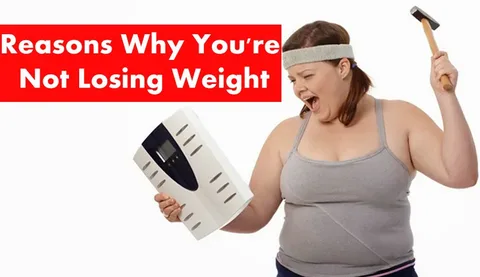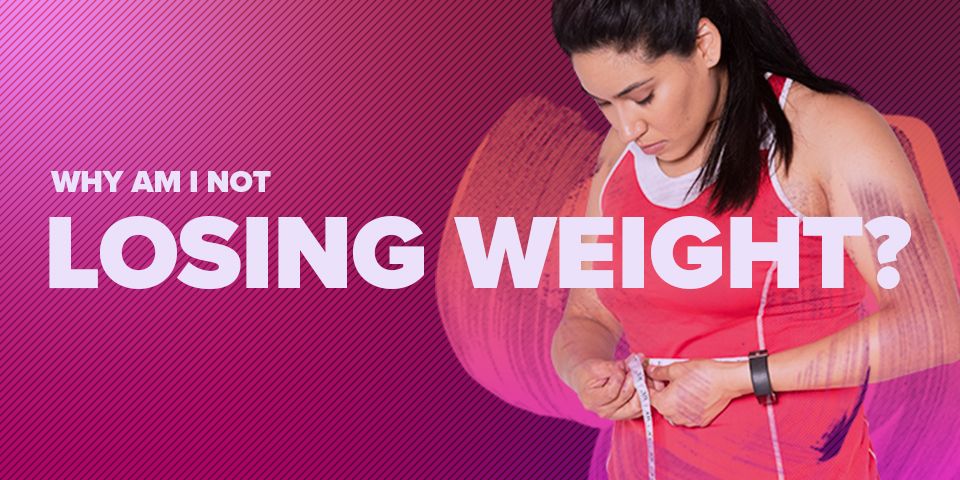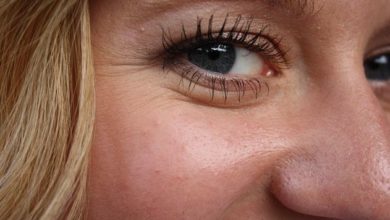
“No matter what I do, I don’t lose weight.” Does that remind you of something ? You are not alone in this situation.
Consuming less energy than you expend is the advice we’ve all heard to lose weight. In summary, move more and eat less. It seems logical, but does it really work?
Many of us combine a healthy diet with physical exercise without succeeding in losing a single gram. We then ask ourselves, and rightly so, the following question: why am I not losing weight? The reasons are multiple.
Here are five that could explain this phenomenon:

1. I’m not losing weight because I’m eating poorly
To function properly and maintain a healthy metabolism, your body needs nutrients . In addition to vitamins and minerals, this also includes certain building blocks like proteins (amino acids), enzymes and essential fatty acids.
If you are a fan of fast food, ready meals and sweets, you will feel hungry more often. On the one hand, this is because these foods quickly cause your blood sugar levels to spike and drop, making cravings inevitable. On the other hand, your body expects nutrients when you eat and if it doesn’t get them, it demands more.
2. I eat too much
We sometimes underestimate the quantities we put on our plates. This also applies to foods considered healthy . For example, a serving of porridge consisting of 80 grams of oatmeal with (oat) milk and banana already contains almost 500 calories.
Even supposedly healthy products sold at the supermarket can make a big difference. Whether it’s a fruit yogurt, a smoothie or a cereal bar, they all have one thing in common: they’re sugar bombs.
3. I don’t lose weight, because I eat too often
Are you eating less, in a calorie deficit and still not losing weight? This is not necessarily due to too much energy intake, but perhaps to hormonal factors.
One hormone plays a particularly important role: insulin . As soon as insulin is secreted, fat burning stops. Every time you eat, your pancreas produces insulin (unless you eat pure fat). Meals high in refined carbohydrates and sugar like rice, pasta, and bread require large amounts of insulin to stabilize blood sugar levels.
4. I eat little and don’t lose weight – Stress
Cortisol , also known as the stress hormone, is another hormone that can disrupt your weight loss. In certain situations and in the short term, cortisol is very useful or even essential because it improves your performance and your concentration.
Too high a cortisol level has negative effects: sleep disorders, increased susceptibility to infections or high blood pressure are some possible consequences.
Increased food cravings and high blood sugar levels may also appear. High blood sugar levels cause the release of insulin which, in turn, prevents fat burning. A long to-do list and work pressure aren’t the only stressors.
A lack of nutrients, exercise or too much artificial light are other stressors that can put a strain on your body. Stress therefore plays an important role and can perhaps explain why you are not losing weight.
5. I’m not losing weight because I’m not eating enough
“What do you mean I’m not losing weight because I don’t eat much?” » Indeed, excessive calorie restriction (more than 500 calories deficit per day) allows weight to stagnate. For what ? Your body slows down its metabolism and your calorie needs decrease, putting a lot of stress on it.
Wait a minute… What about fasting? Be careful, fasting is different. Studies have shown that fasting regularly (for example, 16 hours a day or several times a week for 24 or 36 hours) does not have a negative effect on metabolism. [3]
There is also no loss of muscle mass, which is normally always the case during low-calorie diets. The main difference between eating little and eating nothing at all is once again a question of hormonal balance. No food, no insulin.
Instead, your body produces more growth hormones during fasting phases, which, for example, promote muscle maintenance. [5]
Notes and Annottations
[1] See . National Library of Medicine National Institutes of Health (2020): « The role of dietary protein in obesity » , accessed January 6, 2022.[2] Cf. The American Journal of Clinical Nutrition, Volume 93, Issue 3, (2011): “ Protein choices targeting thermogenesis and metabolism”, accessed January 6, 2022.[3] See Fung, J; Moore, J. (2018) « Fasten Das große Handbuch », riva Verlag, 2018, S. 55-58[4] See Fung, J; Moore, J. (2018) « Fasten Das große Handbuch », riva Verlag, 2018, S. 58-60[5] See Hartmann, ML et. al. (1992): “ Augmented growth hormone (GH) secretory burst frequency and amplitude mediate enhanced GH secretion during a two-day fast in normal men ” , accessed December 15, 2022.




